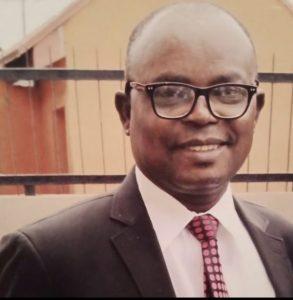By Bola BOLAWOLE
turnpot@gmail.com 0807 552 5533
There was this post on social media which makes a distinction between religion economy and knowledge economy. Nigeria is said to be a Religion economy while a country like South Africa, for instance, is described as a knowledge economy. This is not to talk of the advanced countries of the world like the Western countries or the Asian Tigers and China. South Africa’s exports to Nigeria include MTN, Multichoice, DSTV, Shoprite, Standard Bank, Remgro, Pick ‘n’ Pay Holdings, and Clover Industries whereas what Nigeria exports to South Africa are its big churches – RCCG, Living Faith Church aka Winners, TB Joshua’s Synagogue of All Nations, Christ Embassy, among others!
Let us first refresh our minds with the post on religion economy and knowledge economy; when we return, we will draw useful conclusions.
Dissecting the two phenomena, Anthony Afolo writes:
“There are basically two economies in the world and every nation on the face of the earth falls under either of them. These are: The Knowledge Economy (and) the Religion Economy. The rich and prosperous nations of the world belong to the Knowledge Economy while the poorest and poverty-stricken nations of the world belong to the Religion Economy. The Knowledge Economy is one that engages the brain, asks relevant questions, and proffers solutions to problems. The Religion Economy is one that blackmails God and dumps every responsibility on Him.
“The Knowledge Economy tasks the brain, the Religion Economy numbs the brain. Japan, for example, is a Knowledge Economy. It has no natural resources but it is a prosperous nation, one of the richest on the planet. At least six of every 10 cars on Nigeria’s roads today are Japanese cars. Japan is not a religious country but it is one of the most corruption-free nations. China is not a religious country but nations that ignore China today do so to their own peril.
“Nigeria falls under Religion Economy; everything depends on God. Nigeria is one of the most endowed nations with natural resources; yet, (it is) also among the poorest. Nigeria proudly wears the badge of the “poverty capital of the world” and is one of the most corrupt nations. It is also one of the most religious countries. It is a nation where everything depends on God, and God watches in disgust as we mortgage our brains.
“But here is the irony: The two major religions of the world, Christianity and Islam, emanated from Israel and Saudi Arabia respectively. But none falls under Religion Economy! One evidence of their subscription to Knowledge Economy is the yearly pilgrimages that generate for them revenues in billions of dollars. But hypocritically stupid nations like Nigeria are comfortable disseminating nuisance to humanity with their glamorization of the Religion Economy.

“God is disgusted with the Religion Economy. There’s a reason He gave man brains and instructed him to subdue the earth… It is an illusion to anticipate wisdom where people do not pay attention to knowledge”.
Another commentator, Maxwell Adeyemi Adeleye, in “Knowledge economy vs Religion economy: Between Nigeria and the world”, has this to say:
“In today’s world economy, the contradiction between the knowledge economy and the religion economy presents a compelling narrative that determines every nation’s development. While some countries’ development relies on their innovation, scientific advancement, and investment in education skills, Nigeria seems stuck in a cycle of dependency on religious fervour, neglecting the human intellect and creativity they are blessed with.
“Nations practising the knowledge economy harness the power of human intellect, innovation, and education to drive economic growth and prosperity. They are trained to ask questions, do research, and offer solutions regardless of the situation. Japan (is) a true example… Even with its lack of substantial natural resources, Japan leveraged its skills in technology, research, and development to emerge as one of the world’s most prosperous nations, with zero tolerance for religious extremism.
“In contrast to Nigeria’s reliance on divine intervention, Japan’s success is based on critical thinking, problem-solving, scientific research, and continuous learning. Japanese society has always prioritized education, invested heavily in research institutions, and promoted a conducive environment for technological innovation and development. This has not only helped Japan sustain its economy but also influenced its global markets with its rapid advancements in the automotive, electronics, and robotics industries.
“On the other hand, the Religion economy shows a cycle of dependence on divine intervention while neglecting the promising potential of human intellect and ingenuity. Nigeria, often cited as one of the world’s examples, grapples with systemic issues stemming from her over-reliance on religious faith to address socioeconomic challenges. It covets the development of other countries while asking “God, when?” without taking any steps towards emulating the development process! Despite being blessed with abundant natural resources, over sixty years after independence Nigeria lags behind in overall development, plagued by corruption, poverty, and infrastructural decay, and is still classified as a developing country.
“The continuous collapse of industries and the rise in the number of religious institutions in Nigeria prove the influence of the Religion economy, where leaders and citizens await divine intervention for intellectual solutions. The reliance of Nigerians on faith-based solutions not only deters progress but also increases socioeconomic disparities, degrading Nigeria to the level of the ‘poverty capital of the world’
“Using Israel and Saudi Arabia as case studies proves the notion that religious affiliation prevents economic prosperity. Despite their religious significance as the birthplaces of Christianity and Islam respectively, both nations embraced the knowledge economy, leveraging innovation and strategic investments to bolster their economy. Israel is renowned for its development of technology and defence, signifying the cordial relationship between knowledge and economic development… Similarly, Saudi Arabia and the UAE have made significant strides in diversifying their economy beyond oil dependence; they prioritize investments in education, infrastructure, and technological innovation.
“In contradiction to the successes of Japan, Israel, Saudi Arabia, and the UAE, Nigeria’s adherence to the religion economy has enabled a cycle of underdevelopment and stagnation. Despite its vast potential, rather than development, Nigeria continues to grapple with issues ranging from corruption and unemployment to inadequate infrastructure and healthcare—all man-made issues that can be solved with human intellect and research, if well funded. Yet, citizens await divine intervention for solutions!
“Rather than provide funding for development, Nigerian leaders continue to allocate substantial resources for religious tourism and religious infrastructure… These further buttressed the point of Nigerian leaders’ misplaced priorities. This money could have been invested in education, research, innovation, and sustainable development. Rather, Nigeria squanders resources on religious issues that offer fleeting solace but do little to address the root causes of poverty and underdevelopment.
“The comparison of the knowledge economy and the religion economy serves as a wake-up call for Nigeria to reassess its economic priorities and embrace knowledge and innovation as the path to development and growth. While religious faith and spirituality hold huge value for the citizens and should not be ignored, they must not overshadow the nations’ investment in human capital, education, and technological advancement…”
You need not belabour yourself to know where Nigeria belongs: Between Knowledge economy or Religion economy. The Presidency that budgeted N5 Billion as Students loan (whose goal posts keep moving forward) has reportedly, expeditiously released N90 billion to subsidize the current 2024 hajj operations! While the students will pay back; the alhajis and alhajas will not! While over two million Nigerian youths in institutions of higher learning have N5 billion budgeted as Students loan (N2,500 per student), 95,000 pilgrims to the holy land of Mecca and Medina were subsidized with N90 billion (N947,368.42 per person). I understand they were still even asking for more! Who, then, does not know where our priorities lie! There is no denying the fact that the argument which gives priority to the knowledge economy over the religion economy continues to be lost to Nigerian leaders! But for how long?
Who benefits from the N90 billion hajj subsidy? Corrupt government officials who will cream off a substantial part of the money, foreign airlines, the Saudi authorities, and the Saudi economy. The losers are Nigeria and Nigerians – more so in these austere times!
Who were those who pushed President Bola Ahmed Tinubu to commit this hara-kiri and why did he cave in? To be sure, he wouldn’t be the first Nigerian leader to do this but why couldn’t he summon the same courage of May 29, 2023 of “fuel subsidy is gone” to also announce “hajj subsidy is gone”?
Nigeria and Afghanistan are the world’s two most religious countries; incidentally, they are also the two most corrupt! They are also respectively the first and second poverty capital of the world! In other words, we are only deceitfully religious; we are not pious at all! “Be not deceived, God is not mocked…! (Galatians 6: 7-8).
While God is real, religion is a scam; especially the variant practised here. One of the places where truth is seriously loathed today is the place of worship – and I should know! This is regardless of the admonition of John 8: 32 that “ye shall know the truth, and the truth shall make you free” True, then, are the words of Karl Marx that religion is the opium of the masses!
Shouldn’t we, then, heed the admonitions of Bob Nesta Marley and chase out of town those crazy bald heads and bump heads feeding fat on the Religion economy? Because, truth be told, they really are crazy who prioritize the Religion economy over the Knowledge economy!
- Former Editor of PUNCH newspapers, Chairman of its Editorial Board and Deputy Editor-in-chief, BOLAWOLE was also the Managing Director/ Editor-in-chief of THE WESTERNER newsmagazine. He writes the ON THE LORD’S DAY column in the Sunday Tribune and TREASURES column in New Telegraph newspaper on Wednesdays. He is also a public affairs analyst on radio and television.


















